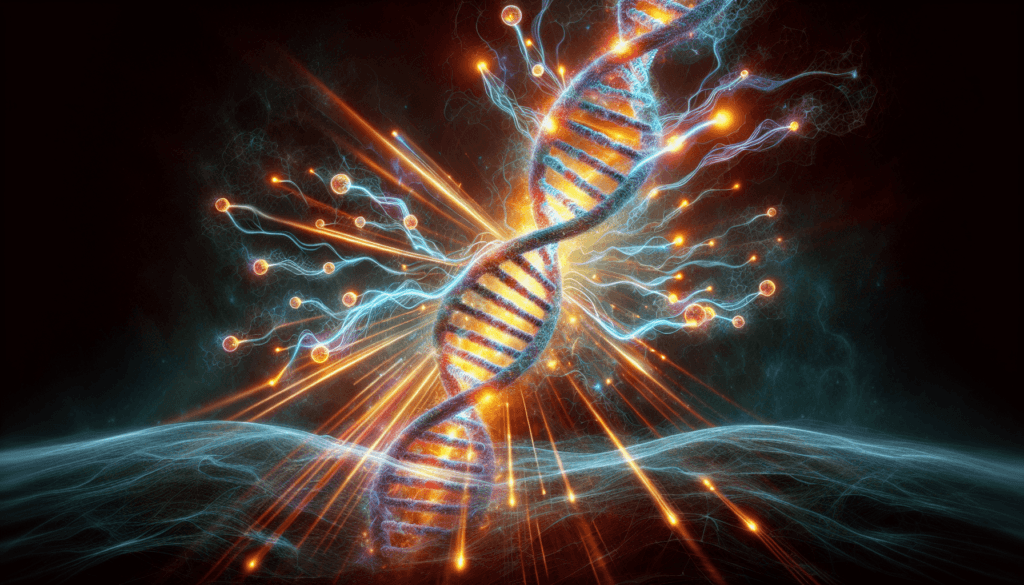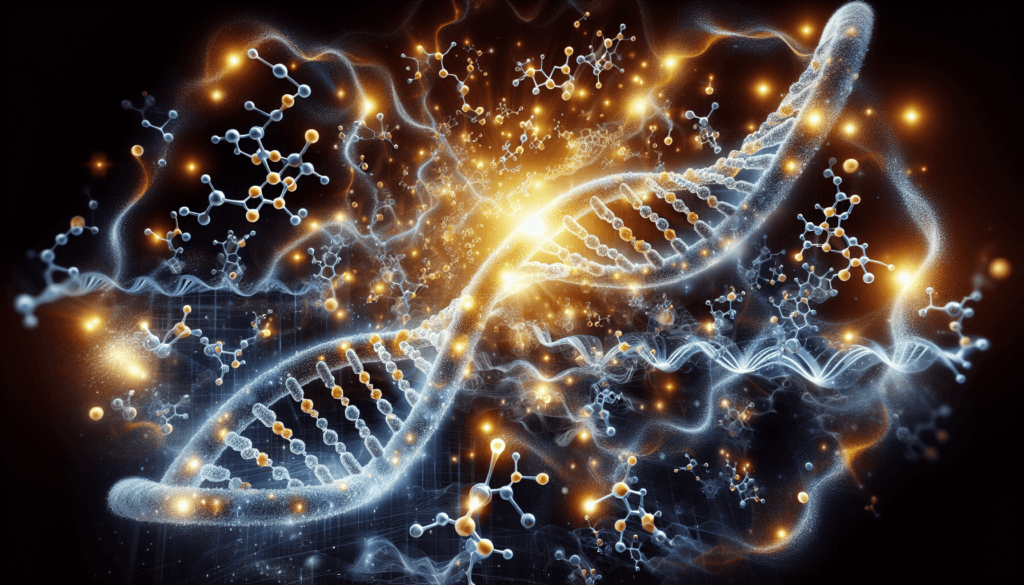Have you ever wondered which hormone in your body plays the starring role in maintaining balance and ensuring everything runs smoothly? Our bodies are intricate machines, with countless processes occurring simultaneously, and hormones are the guiding forces behind these activities. Let’s embark on an enlightening journey to understand the core hormone and its significance in our lives.
Understanding Hormones: The Body’s Messengers
Hormones are chemical messengers that navigate through your bloodstream to organs and tissues, controlling a variety of functions. From growth and metabolism to mood and reproductive processes, hormones are involved in everything. Imagine them as the traffic officers of your physiological world, guiding and regulating the flow of biological information.
The Role of Hormones in Your Body
Table of Contents
Your body comprises several hormones, each with unique functions. These hormones ensure that your body operates smoothly, adapting to changes and maintaining homeostasis.
Hormones and Homeostasis
Homeostasis is your body’s ability to maintain a stable internal environment despite external changes. Hormones are crucial in this process. For instance, they help regulate temperature, balance fluids, and manage energy supplies. When you feel thirsty, it’s because hormones in your body are signaling that your fluid balance is off.
The Diversity of Hormones
There are over 50 hormones in your body, each contributing to your overall health. Some hormones have systemic effects, impacting various parts of your body, while others have more specific targets. Let’s explore some of the key players in your hormonal orchestra.
Key Hormones and Their Functions
Understanding the importance of certain hormones can help you appreciate their role in your health.
Insulin: Managing Blood Sugar Levels
The hormone insulin is produced by the pancreas and plays a pivotal role in regulating blood sugar levels. It helps cells absorb glucose, which is used for energy or stored for future use. Insulin’s effectiveness is vital to prevent conditions like diabetes.
Cortisol: The Stress Hormone
Known as the stress hormone, cortisol is produced by the adrenal glands. It helps manage your body’s reaction to stress, but it’s also involved in regulating metabolism and immune response. While necessary, too much cortisol can be harmful, leading to issues such as anxiety and high blood pressure.
Estrogen and Testosterone: The Sex Hormones
These hormones are primarily known for their roles in sexual development and reproductive functions. Estrogen is usually associated with females, while testosterone is associated with males, though both are present in each gender, contributing to bone density, muscle strength, and other vital functions.
Thyroid Hormones: Regulating Metabolism
The thyroid gland produces hormones like thyroxine (T4) and triiodothyronine (T3), which are essential for metabolism regulation. These hormones influence how your body uses energy, ensuring that you maintain the right balance and body temperature.
Adrenaline: The Fight or Flight Hormone
Adrenaline, or epinephrine, is your body’s instantaneous reaction to stress or danger. It prepares you for a quick response by increasing your heart rate, boosting energy supplies, and improving blood flow to muscles.

The Core Hormone: Why It’s Fundamental
With so many hormones performing specific duties, you might wonder which one is considered the most critical. The answer is somewhat subjective, depending on the context of health and well-being.
The Power of Balance: A Hormonal Symphony
The most important hormone can vary based on individual needs and situations. However, insulin often stands out because of its extensive impact on overall health. Balance is what makes a single hormone stand out as crucial.
Insulin: The Guardian of Metabolic Balance
Without proper insulin function, your body cannot effectively manage glucose levels, leading to various complications like type 1 and type 2 diabetes. Maintaining a balance in insulin production and sensitivity is vital for metabolic health and energy utilization.
The Relationship Between Insulin and Other Hormones
Insulin doesn’t work alone; it interacts with other hormones like glucagon, which raises blood glucose levels when they are too low. This interplay ensures your body maintains energy stability.
Maintaining Hormonal Health
Understanding your hormones can significantly impact your overall health. Here’s how you can help maintain a balanced hormonal environment.
Lifestyle Choices and Hormone Balance
Your daily habits, from diet and exercise to sleep patterns, can influence your hormonal balance.
Nutrition: Fueling Hormonal Health
A balanced diet rich in whole foods, fiber, and healthy fats provides the necessary building blocks for hormone production. Avoiding excessive sugar and processed foods can help prevent insulin resistance.
Physical Activity: Boosting Endorphins
Regular exercise impacts hormones positively. It can boost endorphins, the feel-good hormones, improve insulin sensitivity, and reduce cortisol levels, helping to manage stress and enhance mood.
Stress Management: Keeping Cortisol in Check
Chronic stress can lead to elevated cortisol levels, affecting other hormones and overall health. Techniques such as mindfulness, relaxation exercises, and adequate sleep can mitigate stress and stabilize hormones.
Regular Health Checkups
Monitoring hormone levels can help detect imbalances early. Regular health checkups and screenings are crucial for this, especially as you age and hormonal needs change.

Common Hormonal Disorders
Despite your best efforts, hormonal imbalances can occur, leading to various disorders that can impact your health significantly.
Diabetes: Navigating Insulin Challenges
Diabetes, especially type 2, is often related to insulin resistance. Lifestyle modifications, including diet and exercise, alongside medical intervention, are essential for management.
Thyroid Disorders: Overactive and Underactive Glands
Both hyperthyroidism (excess hormone production) and hypothyroidism (insufficient hormone production) can significantly affect metabolism. Treatment usually involves medication and regular monitoring.
PCOS: Balancing Female Hormones
Polycystic Ovary Syndrome (PCOS) is a condition in women marked by hormonal imbalances, often leading to irregular menstrual cycles and fertility issues. Management includes lifestyle interventions and medications.
Adrenal Fatigue: Understanding Cortisol’s Role
Though not officially recognized as a medical condition, adrenal fatigue describes prolonged stress leading to unbalanced cortisol levels and symptoms like fatigue and sleep disturbances.
The Future of Hormonal Health: What Lies Ahead
Research continues to unravel the complexities of hormones, offering new insights and treatments.
Innovative Therapies and Approaches
Hormonal replacement therapies, dietary interventions, and personalized medicine are paving the way for new solutions to hormonal imbalances. Innovations like targeted hormone therapies are becoming more prevalent.
The Importance of Personalized Medicine
Understanding that each body is unique, personalized approaches tailor hormone treatments to individual needs, considering genetic, environmental, and lifestyle factors.
Conclusion: Embracing Your Hormonal Self
Hormones are the key drivers of your body’s internal processes. Whether managing stress, orchestrating growth, or regulating energy use, they play a critical role in maintaining your health and well-being. By understanding their functions, appreciating their interactions, and recognizing the importance of balance, you are better equipped to nurture your hormonal health, paving the way for a spirited and vibrant life. Remember, your journey within is an ongoing adventure, with each step bringing you closer to understanding the incredible system that keeps you going.





